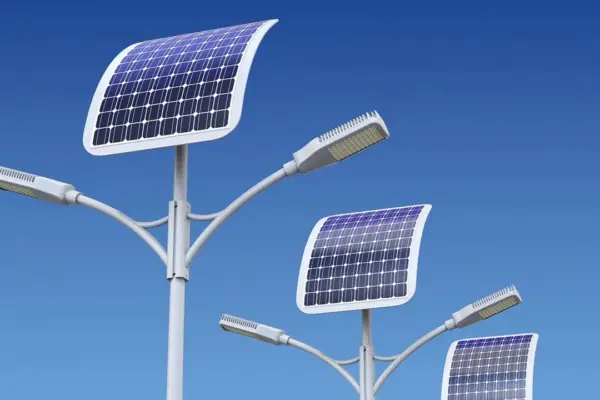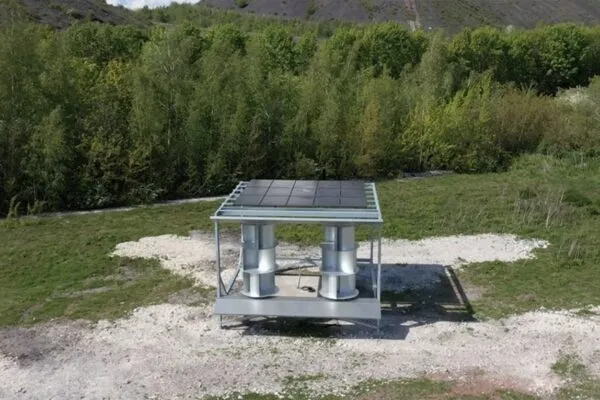New ultrathin solar cells promise 12 percent higher efficiency for flexible applications
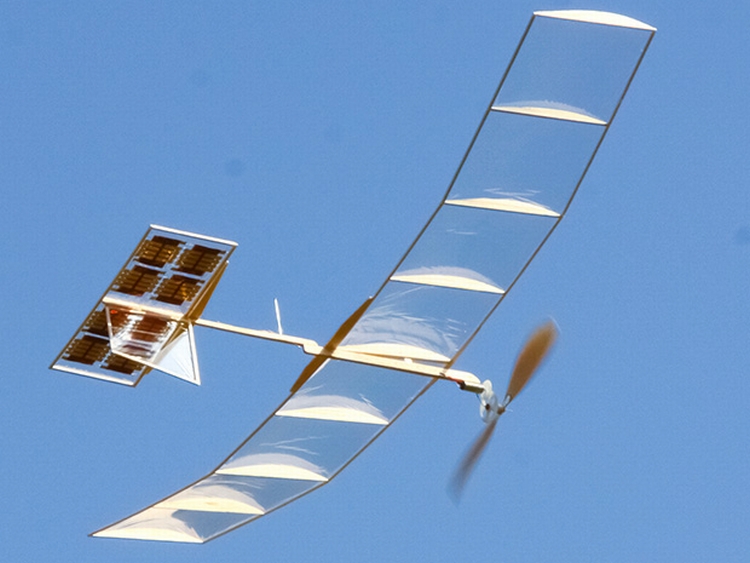
Using new materials, researchers at Johannes Kepler University Linz in Austria have created an ultrathin solar cell, which is only three micrometers thick. It’s 12 percent more efficient with reduced thickness, and that makes it suitable for use in lightweight and flexible applications.
Making solar cells thinner and to increase light harvesting efficiency are two goals that engineers are working on. This invention attends to both.
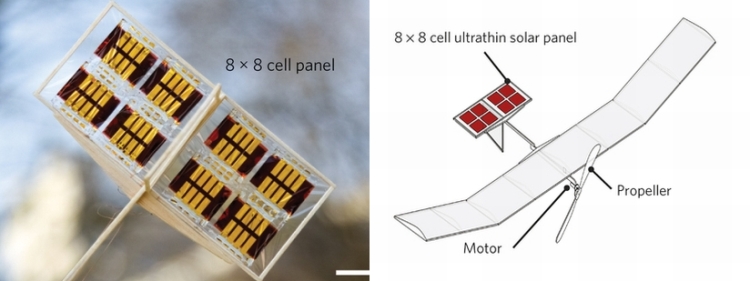
Away from traditional silicon-based solar cells, engineers turned to orgnaolead halide perovskites – direct brand semiconductors capable of absorbing light with higher efficiency.
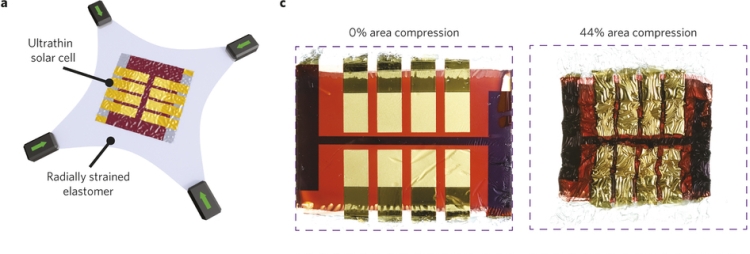
However, sensitivity of new materials to environmental conditions poses a problem for the team. When exposed to oxygen and water, the cells begin to deteriorate. Deterioration poses threat to metal electrodes as well. In order to protect metal contact with the perovskite, team used a chromium oxide interlayer. Further, a clear polymer electrode, treated with dimethylsulphoxide, is applied to cells.
The end result yielded a solar cell that weighed just 5.2 grams with a capacity to generate 120 watts of energy. The team claims it to be a record for power per weight solar cells.
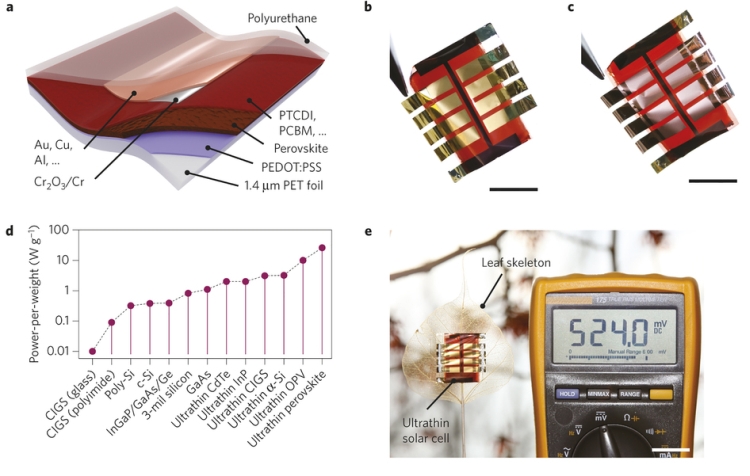
For testing, the cells were attached to a miniature plane and blimp, and reported positive results. The cells worked well. Still, scientists need to find a way to prolong the lifespan, which is only a few days presently. In optimal conditions, the cells might last for a month or two. That makes it applicable to tools like weather balloons, drones etc.
These ultrathin solar cells can prove to be a boon for manufacturers looking to include solar-powered line of devices or other small tools to their collection, which otherwise isn’t possible with traditional, thick solar cells.
Via: Nature
